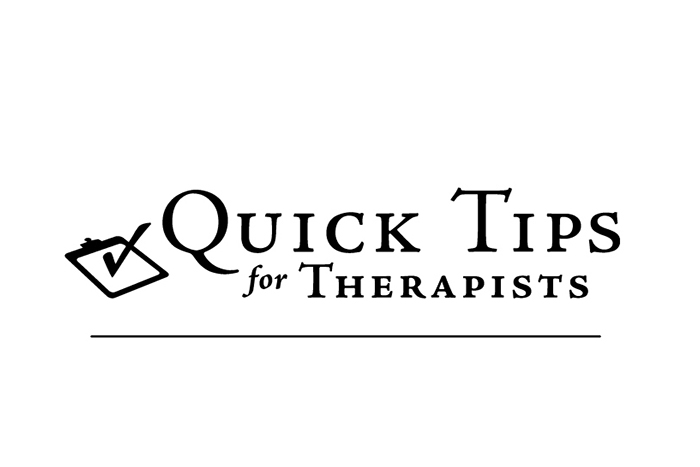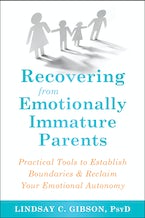Adult children of emotionally immature (EI) parents need their therapists to support their rights by seeing the bullying behavior of these EI parents in a new light. Adult children of EI parents are often trained to be passive, dissociated, helpless, or immobilized by parents who psychologically dominate them. But when you as their therapist articulate and expose EI parents’ manipulations, you strengthen your clients’ reasoning powers and reinforce their sense of equality. For example, try these suggested statements to help shift clients out of passivity to be on a more equal footing with their EI parent.
Situation: The EI parent has asked your client to do something—something that will be inconvenient and maybe even costly to your client. Your client told the EI parent no, but your client feels guilty because now the relationship feels strained. Ask your client to consider the following:
“Does it seem like you can only have a good relationship with your EI parent if you say yes?”
“Your EI parent makes it sound like you have a moral obligation to give them whatever they ask for. Do you? Are you a bad person if you don’t do what they want?”
“Let’s look at the cues they use that make you feel guilty. How exactly do they make you feel like the bad guy unless you say yes every time?”
“This feels like you don’t have the right to any personal limits. Is that true?”
“It sounds like their request turned into a test of your love. Do you believe that if people love each other, they always say yes?”
Such questions help the client root out deep assumptions that the EI parent should always be the most important person in any interaction. Your questions can encourage them to experience themselves as equals with any EI parent.

Lindsay C. Gibson, PsyD, is a clinical psychologist in private practice who specializes in individual psychotherapy with adult children of emotionally immature (EI) parents. She is author of Adult Children of Emotionally Immature Parents and Who You Were Meant to Be, and writes a monthly column on well-being for Tidewater Women magazine. In the past, she has served as adjunct assistant professor of graduate psychology at the College of William and Mary, as well as at Old Dominion University. Gibson lives and practices in Virginia Beach, VA.



 2024 Peace Playbook: 3 Tactics to Avoid Clashes with Your Partner
2024 Peace Playbook: 3 Tactics to Avoid Clashes with Your Partner